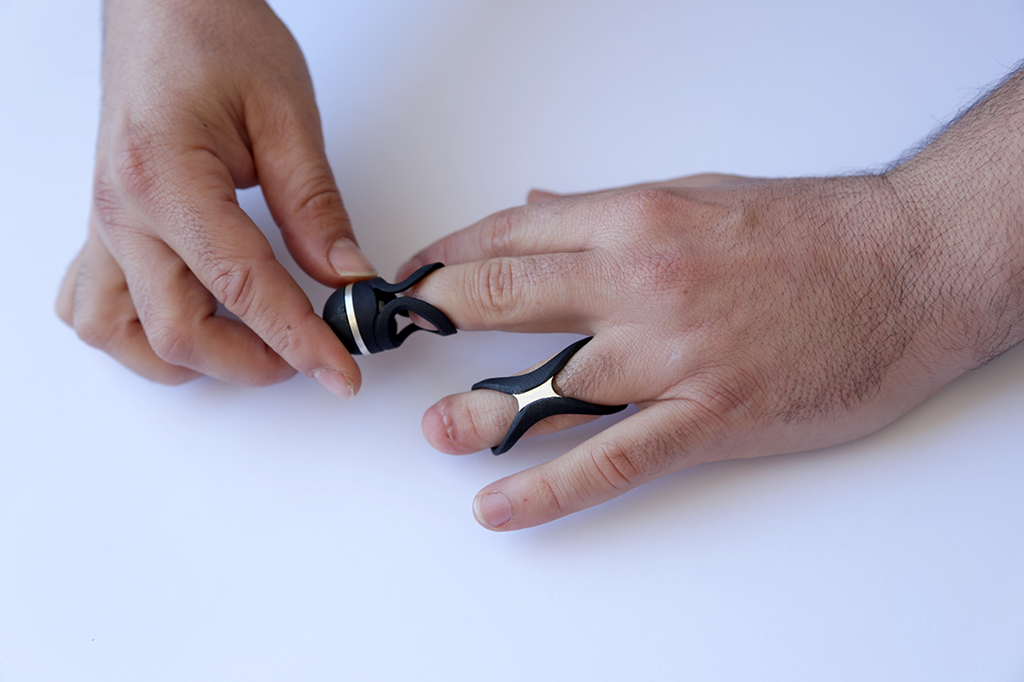Designer Roei Weiman has developed custom assistive typing tools to aid individuals with finger amputations. The project specifically addresses the needs of Yoni, a tech professional with two amputated fingers who faced challenges with typing accuracy and speed. Through multiple iterations, Weiman created specialized braces and extension devices that improve keyboard interaction.
The designs are versatile in terms of production methods. While originally created for SLS 3D printing using nylon materials, the tools can also be manufactured on more common FDM printers using PETG filament. This flexibility makes the assistive devices accessible to a wider range of makers and users.
For enhanced functionality, the designer suggests applying silicone casting to certain components. This additional step provides a grippier surface, improving control and comfort during extended typing sessions. The technique has been documented previously for those unfamiliar with the process.

The project highlights how 3D printing technology enables personalized solutions for specific accessibility needs. These custom assistive devices can be produced by individuals with basic 3D printing knowledge and equipment. The design files are freely available on Instructables for anyone interested in creating similar typing aids.
Source: hackaday.com

